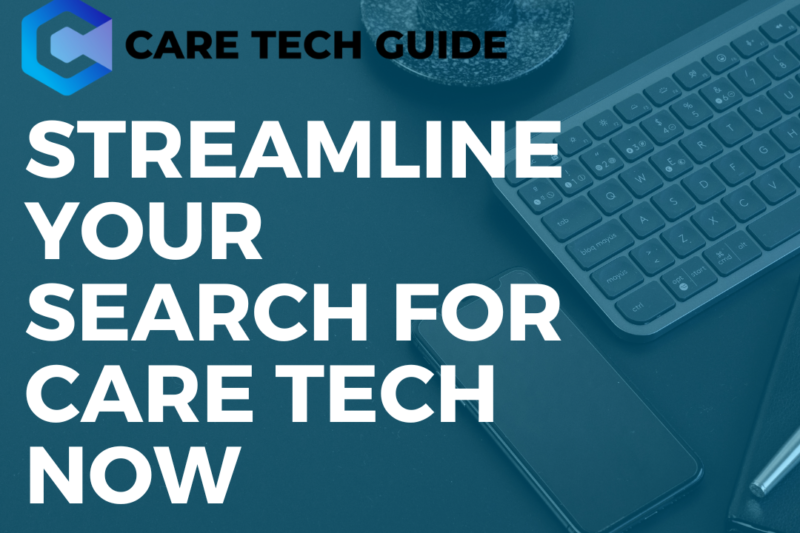Published on Feb 17th,2024 on care tech guide linked-in page.
This is a follow on article from 8th Jan article. In this follow on piece, I go deeper and look at the sector as an industry, consider it's relative youth and reflect on what we can learn from more established industries. Hope you find it of interest!
Near my home in the West Midlands is the British Motor Museum. It is near Warwick and well worth a visit . One of the displays I liked was about how the number of motor manufacturers has consolidated sharply over a 100 year period. For me it's an example of how technology evolves and certain players become stronger over time, brands merge reflecting changing customer trends and the fluctuating availability of financial resources. With these reflective piece, I want to look at digital caretech - a relatively new industry, fast changing with scope to get so much bigger and explore whether there are any parallels.
This is an industry I have been watching and researching for 7 years. I have looked at several hundred caretech supplier websites, along with visiting the main care shows every year. I have read 100's of articles and posts by caretech suppliers and have made friends and acquaintances with many of these pioneers. I think I can say I know the marketing approaches used at present and want to make the case for why developing deeper consumer knowledge of digital caretech can speed up the maturing of the market;
As someone fortunate to have recently managed care homes for many brands as a registered and area manager -Barchester, Bupa, OSJCT, Coverage Care, Abbeyfield, I have a fair idea of the unrealised scope for improvement that digital caretech can bring. I am optimistic about the potential of good tech to improve care. To apply these ideas, let's look at the parallels with the car industry;
What do these brands say to you? For me it is;
VW, Mercedes Benz - reliability, quality and class
Volvo-safety, family, good in snow.
Ford -great prices, affordable and practical.
Lexus -luxury and quality.
Toyota - reliability and practicality.
Tesla -cutting edge tech and eco friendly
Porsche -prestige, speed, exclusivity.
How do we know about these distinctions? From car reviews. From Top Gear! From comparison sites. From independent sources -there is a whole industry here -sharing views, distilling knowledge, creating debate. From the brand themselves , where they have defined their particular strengths.
The public knows and expects these qualities and the brand owners ensure they get them. It works! Though there are many different brands of car -the market is differentiated by price, utility (some make estate cars, some make electric cars,some compact cars, some sports cars.).With so much choice, the differentiation means the consumer can get a shortlist of brands, then a list of models and then work through it with dealers or online car sale sites like Autotrader. (I remember one of the magazines before serving the same purpose - Thames Valley Trader!). This is helpful for the consumer and it makes it easier to navigate the market. Imagine if that type of conversation evolved with care tech!
Reason 1 then -brand distinctions come with a deeper knowledge of people using the product, testing the product, road tests etc. Instead of just reading the advert, independent sources share first hand knowledge and empower the potential buyers- they become more discerning.
Caretech is earlier in it's evolution -there are some dominant brands in terms of marketing and some strong offerings but the differentiation is not so clear in the eyes of the consumer (buyer) yet and this makes it harder for care providers to choose. My peers and I dream of a time where each quality caretech brand is known as being the best within their area - be it nursing homes, or the best with services with learning difficulties, or the best with retirement villages, the best with management reporting. As the distinction is not so clear it hurts the suppliers- they need to be good at everything which is impractical and costly. It makes it harder to sell - as the uniqueness of the supplier and offering is not sufficiently clear.
Reason 2 -differentiation brings clarity for the supplier- concentrating their efforts in a narrower area can lead to a greater share of a specific piece of he market.
The lack of differentiation leads to "push" selling - multiple suppliers claiming the same spot as "the best". That's fine but if you look carefully on posts like this-there is very little engagement from potential customers. Care providers want to see objective evidence -reviews and independent source help consumers make up their mind. Making that more easily available speeds up supplier shortlisting and will build more certainty and trust.
Reason 3 -lack of differentiation leads to "push" marketing which is expensive.
The supplier needs to find customers and then sell them what they have - as opposed to the consumer being able to know the differences and come searching for the right supplier (brand). The costs of this process are passed onto the consumer. It is inefficient and some will mis-sell to survive - hurting the buyer and the reputation of the supplier. It is harmful but understandable.
In my view, the antidote to this is to develop the knowledge of the customer through education. It means less emphasis on push and instead focus on brand building and differentiation -defining those core brand strengths-investing time and resources to make those distinctions and then share it through effective congruent marketing. Let's get clarity on who are the top 5 in the different sub categories -let's hear from the reviews, learn, adapt, become more differentiated.
I know caretech suppliers may be apprehensive to let go of the control of push selling but imagine how much larger the sector can become if consumers were more informed and easily able to find those solutions. It is not a coincidence that the Amazon website is so easy to use. The complexity behind it to make it so took 20 years and many £Billions. I am not praising Amazon per se just looking at how consumer interaction is tied with GROWTH.
Reason 4 - the existing Caretech market could be SO much bigger with informed consumers. Imagine if a brand is known for that speciality and ALL the providers operating in that niche of the market come to that supplier first! What if tech suppliers could focus more on brand differentiation, quality, service and needed to spend less on marketing? Visitors to a VW showroom don't need to be told what the brand stands for.
Beyond that look at how the market for computers, apps, cars has grown -the total market for these products will keep growing - as populations increase as well as life expectancy. See how virtual wards are popping up to reduce dependency on the physical hospital spaces and those limited resources. This is just the beginning and the demand for tech in this area will get bigger and bigger over time.
In conclusion, focusing on branding, developing differentiation and developing the objective knowledge of the consumer in my opinion can make the digital caretech market more accessible which in turn will lead to growth - easy and clear equals more consumer engagement. This will help us make an even greater positive impact on care services and those who use them. In time -this is likely all of us one way or the other.
Liam Palmer
n.b. I help care providers access the 450 digital caretech products we've found through an online resource called caretechguide. It's independent, and free forever. No fees. No tricks! I also help caretech suppliers market their products. CareTechGuide website




